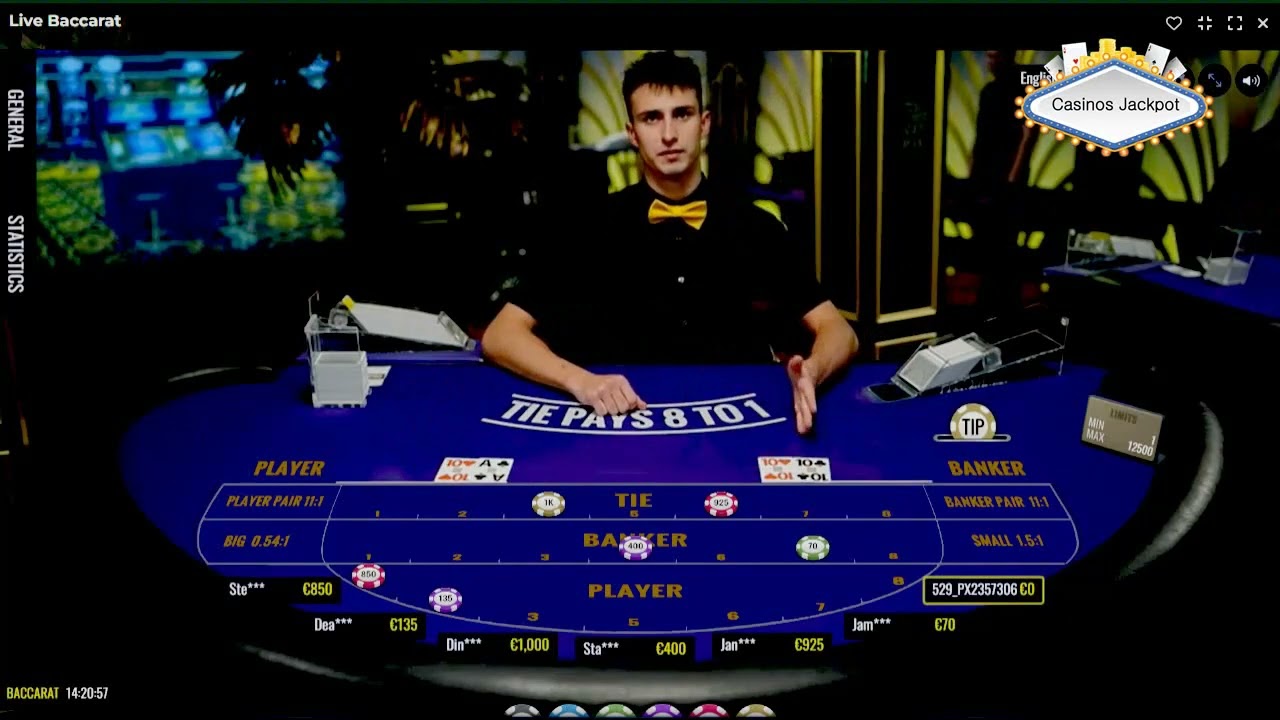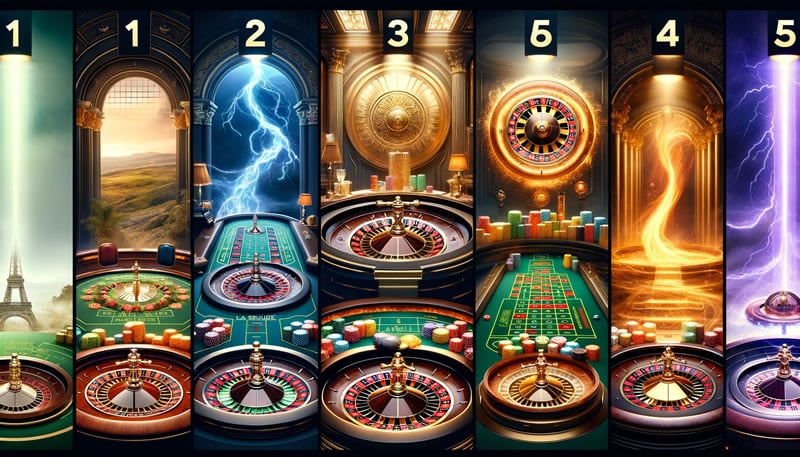The attraction of the jackpot is so strong that individuals across different backgrounds are drawn to it. It presents a nearly irresistible pull comes from the chance of winning a sizable quantity of money through casino games, participating in lotteries, or playing games of chance. For millions of people around the world, the idea of becoming wealthy and gaining financial independence overnight holds great appeal. Numerous psychological factors play a role in the jackpot's allure.

Main Points
- Why jackpots captivate us: The excitement of landing a huge win draws people in due to the potential for transformative gains.The dopamine-driven jackpot effect: The brain's response to potential gains, such as winning a jackpot, is driven by the release of dopamine, creating a sense of pleasure and motivation.Risk and reward dynamics: Our draw to jackpots stems from the combination of risk and potential reward, activating the brain's reward system.The psychology of hope and optimism: The chance of a big win influences our outlook, fostering feelings of hope and positive expectation for the future.The impact of social and cultural factors: The jackpot’s appeal to us is influenced by societal values, cultural norms, and peer pressure.
The ability to indulge in luxuries without worrying about money and the possibility of becoming financially free are the main draws for many. The attraction of potentially being able to afford anything, such as luxurious clothing or exotic trips, motivates people to strive for big successes. Also, a major part of the jackpot's appeal stems from its element of surprise & uncertainty. The rush can’t easily be replicated the adrenaline rush that is produced by the prospect of striking it lucky with a single lottery ticket purchase or by spinning the wheel for a large payout. The allure of the jackpot also taps into our innate desire for adventure and excitement.
The chance of getting rich offers an exciting new life free from the routine of day-to-day living. Many people are motivated to pursue the ultimate jackpot prize because they find great resonance in the idea of taking a chance & possibly emerging victorious. The thrill of making a big wager or the suspense of anticipating the outcome are just two examples of how people are drawn to jackpots because they represent human nature's need for thrills and adventures. Dopamine's Role in Anticipating Wins. Dopamine plays a major role in attracting us to potential rewards, which is why jackpots are so alluring.
A neurotransmitter called dopamine is produced in response to pleasurable experiences like indulging in delectable food, taking part in enjoyable activities, and yes, winning big. Dopamine plays a crucial role in the brain's reward system. Dopamine is triggered in our brain when we expect a possible reward, like winning the lottery, which makes us feel good and makes us want to go after the reward even more. The dopamine-driven pursuit of huge wins. We are strongly motivated to look for chances for large wins by the strong psychological pull that is created when dopamine is released in response to potential gains.

Our natural desire for risk and reward is closely tied to the allure of the lottery. The chance of a huge win is a high-stakes game that appeals to our deep need for risk and excitement. Our interest in jackpots is driven by the risk and excitement that comes with chasing large wins. Lots of people find great resonance in the idea of taking a risk and possibly earning huge rewards, which motivates them to take chances in the hopes of winning the ultimate lottery prize. Humankind’s history as hunter-gatherers may also be used to explain the role that risk and reward play in attracting us to jackpots.
Risk-taking was essential for survival throughout our evolutionary past because it often determined gathering food and going hungry. This behavior became beneficial in obtaining food, shelter, and other necessities, it became hardwired in us to look for opportunities with high rewards. This natural inclination for risk still shapes our actions today, leading us to chase jackpots and urging us to take more risks in the hopes of striking it rich.
Risk and reward drive our pull to jackpots, which connects with our need for independence and autonomy. The chance to become wealthy offers the chance to live life without limits and on one's own terms. The prospect of taking a chance and possibly making huge gains appeals to our desire for control and self-determination, which drives us to chase big rewards in the quest for financial independence. Our attraction to jackpots is largely driven by the psychology of optimism & hope. The chance for a massive win sparks hope for a better future, which bolsters our confidence and inspires us to aim for large wins.
It is difficult to resist the optimism that arises from the idea that one lucky moment has the potential to improve our lives. The possibility of vast wealth taps into our desire for optimism and hope, pushing us to take risks in the quest for future prosperity and stability. The optimism and hope psychology also deeply influences our mindset about going after big victories.
We are energized by hope and we are inspired to keep chasing after large wins despite the odds when we have the possibility of winning the jackpot. This sense of hope and excitement can create addiction-like behaviors. We gamble for financial freedom because we have an unshakeable sense of hope that one fortunate break could change our future. The influence of optimism & hope on our thinking regarding jackpots also relates to our innate need to be in charge of our own lives. Our optimism is fueled by the possibility of striking it rich, which drives us to gamble in the search for financial freedom and freedom from financial constraints. We can't ignore the influence of social & cultural factors on our attraction to jackpots.
We are continuously exposed to messages that strengthen the allure of striking it rich, from the popular media's portrayals of sudden wealth to social pressures to achieve financial wealth. Our attitudes toward chasing large wins are shaped by cultural and social messages, which also feed our addiction to jackpots and encourage us to gamble in the quest for financial security. Social pressure and cultural expectations are just two more examples of how social and cultural factors affect our craving for jackpots. Seeking large victories is seen as an desirable, glitzy, and exciting pursuit in many social circles.
Individuals might gamble more in an effort to gain validation or impress others by experiencing the pressure to match the success of peers or those who have won big. The human desire for recognition is further evidenced by the societal influences on our attraction to jackpots. The reason we crave jackpots and encourages us to take chances in the hopes of hitting the jackpot is the chance for wealth and fame, which can further improve one's social status. The Addicting Cycle of Pursuing Huge Wins. Dopamine's influence on big wins can create a dangerous cycle that causes individuals to keep gambling in the hopes of winning big, often at a huge cost.
Chasing losses can result in a harmful pattern that can devastate an individual's financial stability and general well-being. The Dark Side of check here the Jackpot: Mental Health Effects. Pursuing big wins can have detrimental effects on relationships and mental health in addition to financial losses. Gambling addicts frequently struggle with mounting debt & money problems, which can leave them feeling anxious, depression, and hopeless.
In addition, chasing jackpots can strain bonds with friends & family, leading to isolation & isolated. The necessity of Support & Awareness. The dangers of chasing jackpots highlight that individuals struggling with addiction need more understanding and support.
Society must recognize the risks of gambling and provide help to those in danger of addiction. By doing this, we can endeavor to establish a setting that is safer and more encouraging for people who might be having trouble the lure of the big win. Create healthy gambling habits to allow people to control the psychological effects of jackpot pursuits.
Limiting the time spent and money spent on gambling activities can help people stay away from compulsive behavior patterns and lessen the risks involved in gambling for big wins. For individuals struggling with gambling addictions due to jackpot chasing, getting help from friends, family, or professional counselors can be a great resource. People can prevent themselves from falling into addiction by learning effective coping mechanisms for handling stress and anxiety.
People can discover healthy ways to cope with stress without gambling by staying active, practicing mindfulness, or pursuing relaxing hobbies. In conclusion, individuals of all backgrounds are fascinated by the jackpot because of its irresistible attraction. Our attraction to big wins is fueled by a variety of psychological factors, ranging from the dopamine response in reaction to possible rewards to our innate desire for risk and reward. However, to avoid falling into gambling addiction, people should be aware of the possible risks involved in jackpot pursuits and adopt healthy habits for managing the emotional effects.
Individuals can still enjoy the thrill of jackpots without giving in to the negative effects of compulsive gambling behavior by comprehending the psychology underlying our attraction to jackpots & adopting positive, responsible gambling behaviors.
FAQs

Why are we drawn to huge jackpots?
Our interest in large jackpots is rooted in the human brain's reward system. When we anticipate the possibility of winning a large sum of money, our brains release dopamine, a neurotransmitter linked to joy and reward. This dopamine release makes us feel good and anticipation, which can be highly addictive.
What keeps people playing after they lose?
People continue to play for jackpots even after experiencing losses due to the effect of near-miss events. When individuals come close to winning but ultimately fall short, it creates a dopamine boost just like that of a real win. This close-call event fuels hope and encourage continued play, even when they’ve lost before.
How does social pressure fuel jackpot attraction?
Social factors are key in our craving for jackpots. The prominence of jackpot winners in the media and within social circles can create a sense of social proof, leading individuals to believe that winning is achievable and desirable. Additionally, the joy and celebration around big wins can motivate others to start gambling.
What are the downsides of craving jackpots?
The attraction to winning big jackpots can lead to potential negative effects, particularly when it becomes compulsive or addictive. Excessive gambling in pursuit of jackpots can result in financial strain, damage personal relationships, and mental health issues. Additionally, the craving for jackpots can create false hope and skew one's view of odds.
How can individuals manage their attraction to winning big jackpots in a healthy way?
Individuals can manage their attraction to winning big jackpots with smart strategies by setting limits on their gambling behavior, practicing responsible gaming, and seeking support if they suspect their interest is turning into an issue. It's important to approach gambling activities with a balanced perspective and enjoy it for fun over obsessing about winning big.